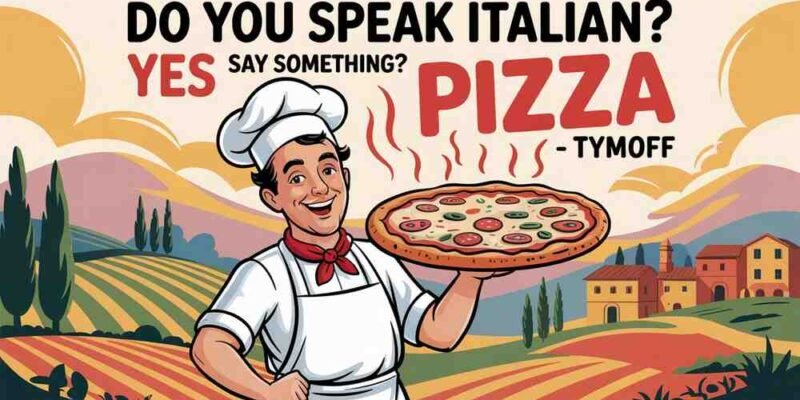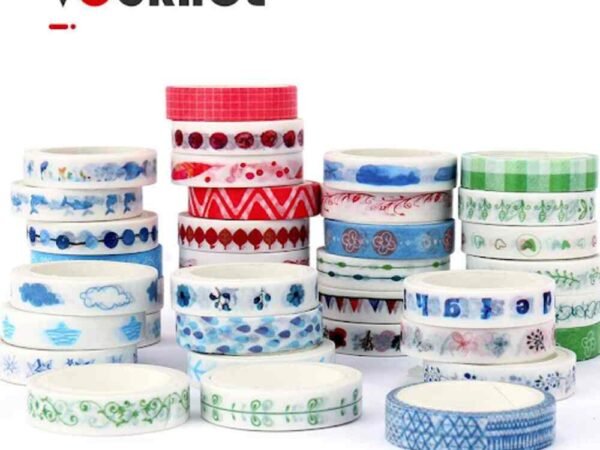Introduction
In a world where memes spread like wildfire and cultural references become the common language of the internet, one phrase has emerged from the crowd and amused audiences globally: “Do you speak Italian? Yes? Say something… Pizza!” Often accompanied by the name Tymoff, this quote has taken on a life of its own. It’s humorous, catchy, and immediately paints a picture in the mind. But behind its playful exterior lies a mix of language learning quirks, cultural assumptions, and viral social media phenomena. This article dives deep into this viral meme’s origins, implications, and relevance and what it says about how we engage with foreign cultures—mainly Italian.
The Origins of the Phrase
The phrase “Do you speak Italian? Yes? Say something… Pizza!” is a humorous snapshot of how people often oversimplify language learning. Its popularity can be traced back to platforms like TikTok and Instagram, where short, punchy, and relatable content spreads rapidly. The format plays on the comedic trope of someone claiming to speak a language only to utter the most basic, cliché word associated with that culture—in this case, pizza.
Tymoff, often mentioned in connection with the phrase, is not necessarily the original creator but has become a familiar name linked to viral quotes and captions circulating online. Whether it’s inspirational, ironic, or meme-worthy, Tymoff’s name surfaces wherever a quote finds traction. This association has only helped the phrase embed itself further into online culture.
Breaking Down the Humor
At the heart of this viral quote is the juxtaposition between the claim of knowing a language and the reality of not going beyond a single word. “Pizza” is not just any word—it’s the quintessential Italian food item adopted worldwide. That universal familiarity makes it the punchline.
The humor lies in the superficiality: Someone is asked to say something in Italian and defaults to what is likely the first—and maybe only—Italian word they know. This satirical lens pokes fun at how language and culture are often reduced to pop-cultural signifiers. It’s funny because it’s true for so many of us—we’ve all met someone who claims to speak a language and then says “taco,” “bonjour,” or “pizza.”
Italian Language 101: Saying “Do You Speak Italian?”
Let’s take the meme one step deeper into actual language learning. The Italian phrase for “Do you speak Italian?” is “Parli italiano?” (informal) or “Parla italiano?” (formal). If someone wants to respond affirmatively, they might say, “Sì, parlo italiano.” From there, they could share phrases like “Mi chiamo…” (My name is…) or “Come stai?” (How are you?).
In reality, learning Italian—or any language—requires a lot more than being able to name a food item. This makes the joke behind the meme both amusing and telling. It reveals how much pop culture and food have infiltrated language associations and highlights the gap between actual linguistic knowledge and surface-level familiarity.
Pizza and Italian Identity
Pizza is arguably Italy’s most globally recognized export, alongside pasta and espresso. From Naples to New York, it has become a universal food. That cultural saturation is precisely why “pizza” is the fallback Italian word in the meme.
But pizza is more than just a culinary icon. It represents heritage, regional pride, and even UNESCO-protected traditions (Neapolitan pizza-making is recognized as an Intangible Cultural Heritage). The joke implies that pizza is all there is to Italy, but it’s a symbol of authenticity, identity, and pride for Italians.
Social Media Trends and User Reactions
The meme format has exploded across TikTok and Instagram reels. You’llCreators often role-play the scenario, exaggerate the accents, or react with playful outrage. These videos usually garner millions of views precisely because the setup is simple and universally understood.
Public reactions are divided. Some users consider it lighthearted fun—a harmless poke at linguistic ignorance. Others, especially native Italian speakers, occasionally express frustration that their language and culture are reduced to food stereotypes. This duality of reactions keeps the meme alive in conversation: it’s both relatable and debatable.
Cultural Commentary: Harmless Fun or Lazy Stereotyping?
While most memes are born from humor, it’s worth asking what happens when that humor leans on cultural shorthand. Is it just a laugh, or does it contribute to broader misunderstandings? Reducing a rich language like Italian to one word—however delicious that word maybe—can oversimplify a culture in ways that subtly reinforce lazy thinking.
On the other hand, the meme could be seen as a conversation starter. It highlights the gap between perceived and actual knowledge. If someone laughs and says, “I should learn more than just ‘pizza,'” that’s a step in the right direction. Memes like this can gently expose ignorance while nudging us toward curiosity.
Why It Matters for Language Learners
The meme underscores an essential point for language learners: real fluency is more than vocabulary. It’s about context, grammar, idioms, and culture. Learning a language opens doors to human connections, literature, cinema, and untranslatable concepts that a single word can’t capture.
Many resources are available for those inspired by the phrase to start learning Italian, from Duolingo and Babbel to YouTube channels and language exchange apps. Italian is a melodious and expressive language with a long literary and artistic tradition. It’s worth exploring beyond the pizza box.
Conclusion
The phrase “Do you speak Italian? Yes? Say something… Pizza!” – often credited in meme circles to Tymoff – is more than just an internet joke. It reflects how we engage with language in the digital age: fast, funny, and sometimes superficial. But it also offers an opportunity. We can laugh at the meme while recognizing the need for deeper understanding. In a world of endless scrolling, sometimes one viral phrase is all it takes to spark genuine interest in another culture.
So, the next time someone asks if you speak Italian, surprise them with more than just “pizza.” Try “Buongiorno,” “Grazie,” or even “Mi piace imparare l’italiano.” Because behind every meme is a chance to learn something real.
Do Read: Mary Carey Van Dyke – Life, Legacy, and Family Insights













